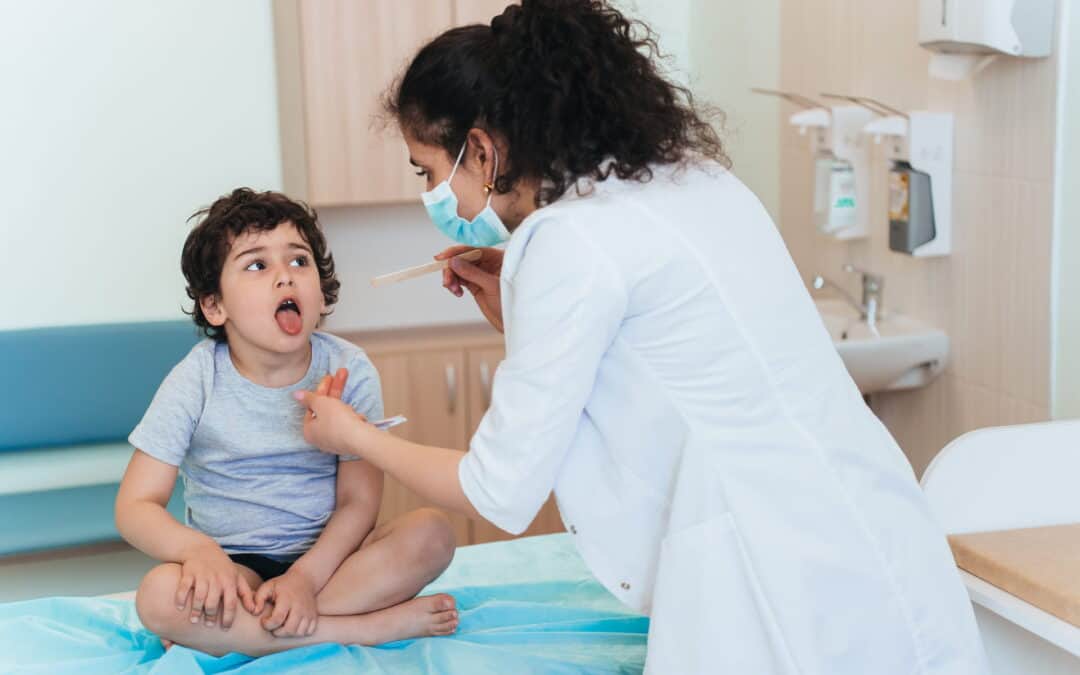Pediatric care is an essential aspect of a child’s health, particularly during their early developmental stages. Parents often wonder why regular visits to a pediatrician or family doctor are so important, and this article aims to shed light on that very question. Pediatric care provides a foundation for healthy growth, early detection of potential issues, and overall well-being for children. In this article, we will explore the reasons behind the necessity of pediatric care in these crucial early years, backed by expert insights and well-known facts.
Importance of Pediatric Care in Early Development
During the early years, children experience rapid growth and development, both physically and mentally. A pediatrician’s role is not just to treat illnesses but to ensure that children are developing as they should. For example, regular checkups with a family doctor can catch developmental delays early, which is crucial for timely intervention. Pediatric care is crucial in the early developmental stages for several reasons:
- Monitoring growth and development to ensure children are meeting milestones.
- Providing vaccinations to protect against serious illnesses.
- Offering guidance on nutrition and healthy lifestyle choices.
Regular Checkups Family Doctor
Regular checkups are a cornerstone of pediatric care. These visits allow doctors to monitor a child’s growth, assess their development, and catch any potential health issues early. For instance, a family doctor might notice that a child’s weight is not increasing as expected, prompting further investigation and necessary intervention. Regular pediatric visits ensure:
- Continuous monitoring of growth and development.
- Early detection of health problems like asthma or diabetes.
- Guidance on important health practices like diet and exercise.
Immunizations and Prevention
Immunizations are a critical component of pediatric care. Vaccinations protect children from many preventable diseases, some of which can have serious, long-term consequences. By following the recommended immunization schedule, parents can ensure their children are protected from illnesses such as measles, mumps, and whooping cough. According to the CDC, vaccines have prevented countless cases of disease and saved millions of lives globally. Key aspects include:
- Prevention of serious and potentially deadly diseases.
- Contribution to herd immunity, protecting those who can’t be vaccinated.
- Reduction in the incidence of vaccine-preventable diseases.
Monitoring Growth Milestones
Tracking a child’s growth milestones is a significant part of pediatric care. These milestones are critical indicators of a child’s overall health and development. Pediatricians and family doctors look for specific developmental markers to ensure children are on the right track. If any issues are detected early, appropriate interventions can be implemented. Monitoring growth milestones includes:
- Checking physical growth parameters like height, weight, and head circumference.
- Assessing motor skills development such as crawling, walking, and grasping.
- Evaluating cognitive and social skills progress.
Early Detection of Health Issues
Early detection of health issues can significantly impact a child’s future health. Pediatricians are trained to notice signs of common and uncommon health problems that might not be apparent to parents. Regular visits allow for early diagnosis and treatment, which can prevent more severe complications later on. Health issues that can be detected early include:
- Developmental delays or disabilities.
- Chronic conditions like asthma or allergies.
- Behavioral and emotional problems.
Mental and Emotional Development
Pediatric care isn’t only about physical health; it also covers mental and emotional well-being. Children’s mental health is just as important as their physical health, and early intervention can make a big difference. Pediatricians can help identify signs of anxiety, depression, or other mental health issues, providing support and resources for families. The focus on mental and emotional development includes:
- Identifying early signs of mental health issues.
- Providing resources and referrals for mental health support.
- Offering guidance on fostering a supportive and healthy home environment.
Nutritional Guidance Pediatric Care
Nutrition plays a vital role in a child’s growth and development. Pediatric care includes providing parents with essential guidance on nutrition to ensure their children are getting the necessary nutrients for healthy development. Pediatricians can offer personalized dietary advice based on a child’s specific needs, helping to prevent nutritional deficiencies and promote overall health. Nutritional guidance includes:
- Recommendations for a balanced diet rich in fruits, vegetables, and whole grains.
- Advice on portion sizes and healthy eating habits.
- Support for parents dealing with picky eaters or food allergies.
Parental Guidance and Support
Pediatric care extends beyond the child to offer support and guidance to parents. Pediatricians and family doctors can provide valuable advice on a wide range of topics, from sleep training to managing common childhood illnesses. This support is crucial for new parents who may feel overwhelmed and unsure about the best ways to care for their children. Parental guidance and support include:
- Tips on establishing healthy sleep routines.
- Advice on managing common childhood illnesses like colds and ear infections.
- Resources for parenting classes or support groups.
Key Takeaways for Pediatric Care
Key Takeaways from Pediatric Care in Early Development
- Pediatric Care Importance: Essential for monitoring growth, providing immunizations, and offering nutritional guidance.
- Regular Checkups: Necessary for early detection of health issues and continuous development tracking.
- Mental Health: Pediatricians help with early identification of mental health concerns and provide resources for support.
Frequently Asked Questions
1. How often should my child see a pediatrician?
- Newborns typically need checkups every few weeks, then every few months as they grow, and annually after age three.
2. What vaccinations are essential in early childhood?
- Essential vaccinations include those for measles, mumps, rubella, polio, and whooping cough.
3. Can a family doctor provide pediatric care?
- Yes, many family doctors are trained to provide comprehensive pediatric care alongside other family health services.
4. How can I prepare my child for a pediatric visit?
- Explain the visit in simple terms, bring a favorite toy or book for comfort, and stay calm to reassure your child.
5. What should I do if I notice a developmental delay in my child?
- Schedule an appointment with your pediatrician immediately to discuss your concerns and plan the next steps for evaluation and intervention.
By following these guidelines and understanding the importance of pediatric care, parents can ensure their children receive the best possible start in life. Regular visits to a pediatrician or family doctor are crucial for maintaining health and catching potential issues early.

